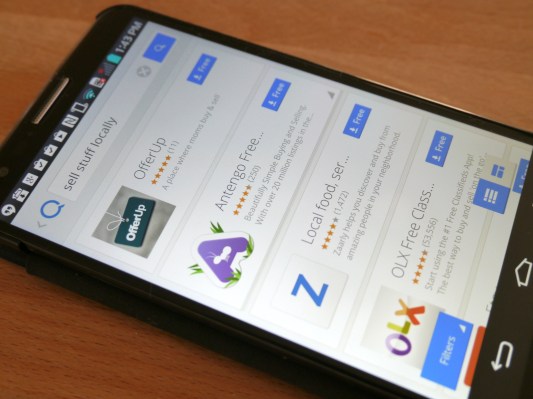Quixey, a well-funded mobile technology company which once focused on solving the problems with app discovery before shifting focus to deep linking, has brought in a new CEO to run operations as the company has missed its revenue targets and lost top execs. According to an announcement released this morning, Quixey’s founding CEO Tomer Kagan will now be replaced by Mark Lazar, who was previously CEO of over 10 companies, including Victrio, Tuvox, Talking Blocks, Pacific Edge Software, and LoopNet.
Kagan will continue in a role of chief strategy officer, and will focus on further developing Quixey’s next generation mobile search technology, the company says.
The startup was once one of many working to solve the challenges with today’s app stores – that finding the right apps were difficult, and the search engines that powered the app stores were not up to the job. Quixey instead, offered its own search engine for apps, and it even introduced a consumer-facing mobile application that would make app search easier for Android users.
However, none of those efforts took off, which is why the company more recently has been focused on in-app advertising products.
The downtown at the startup has also seen it losing key execs, including CTO Sudhir Mohan and COO K. Guru Gowrappan, as Re/code reported in February. That report said that Quixey’s advertising business had also fallen short of sales expectations.
One of the technologies Quixey had been working on – a deep linking product, which offers a way to directly link to the pages of content within mobile applications – is now also competing with Google, whose own take on deep linking is powering new search results where users can click on links from Google on their mobile devices, then launch apps on their phone. And Google supports both Android and iOS applications in search.
Meanwhile, the major app stores have made big improvements in search over the years, making it less challenging to find apps based on keywords.
Quixey believes it can still compete in this larger deep linking space, however, despite Google’s entry. For that to be possible, the company may need to look to China. Thanks to its Alibaba backing, the company could potentially develop new relationships in the Chinese app market to grow its business. But it may not ever reach that $600 million valuation it once claimed.
“Quixey has a unique vision and place in mobile search alongside big industry players like Google,” said Lazar, in a statement. “I’m excited to come on board to lead the global Quixey team and provide the right strategy and execution to bring this vision to life. This is a key point in Quixey’s history as we prepare to take innovative products to market.”
